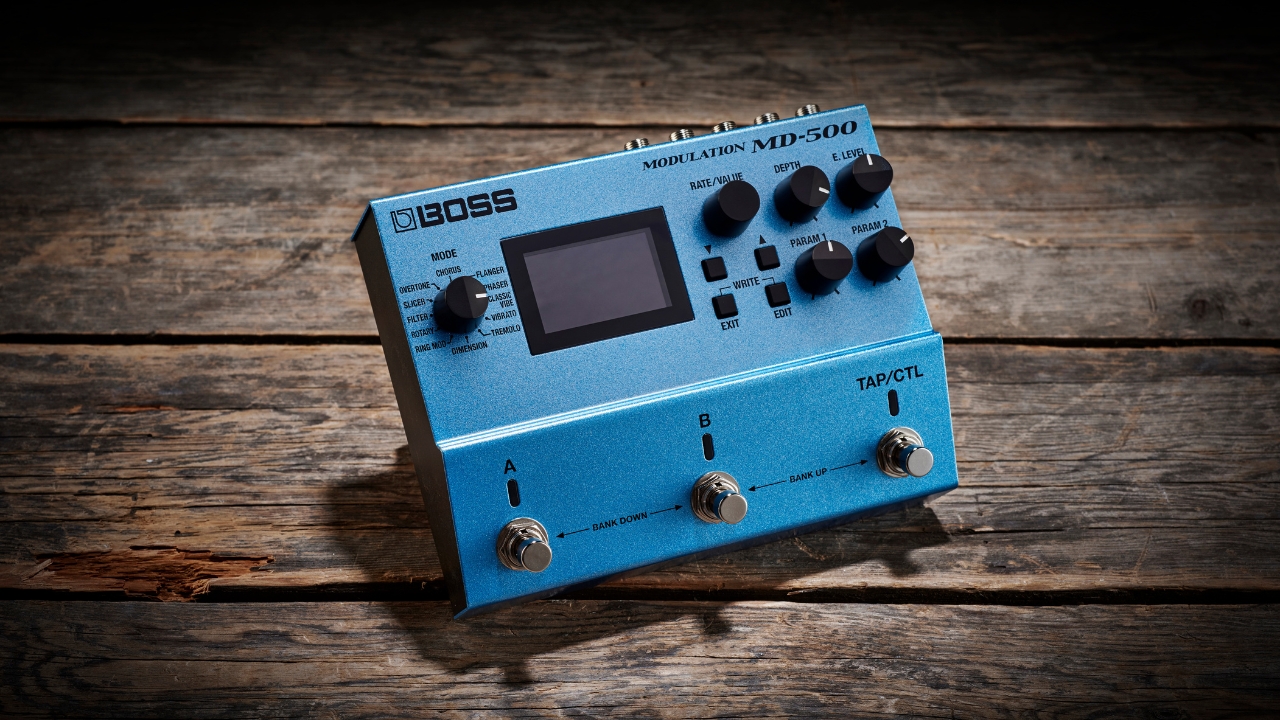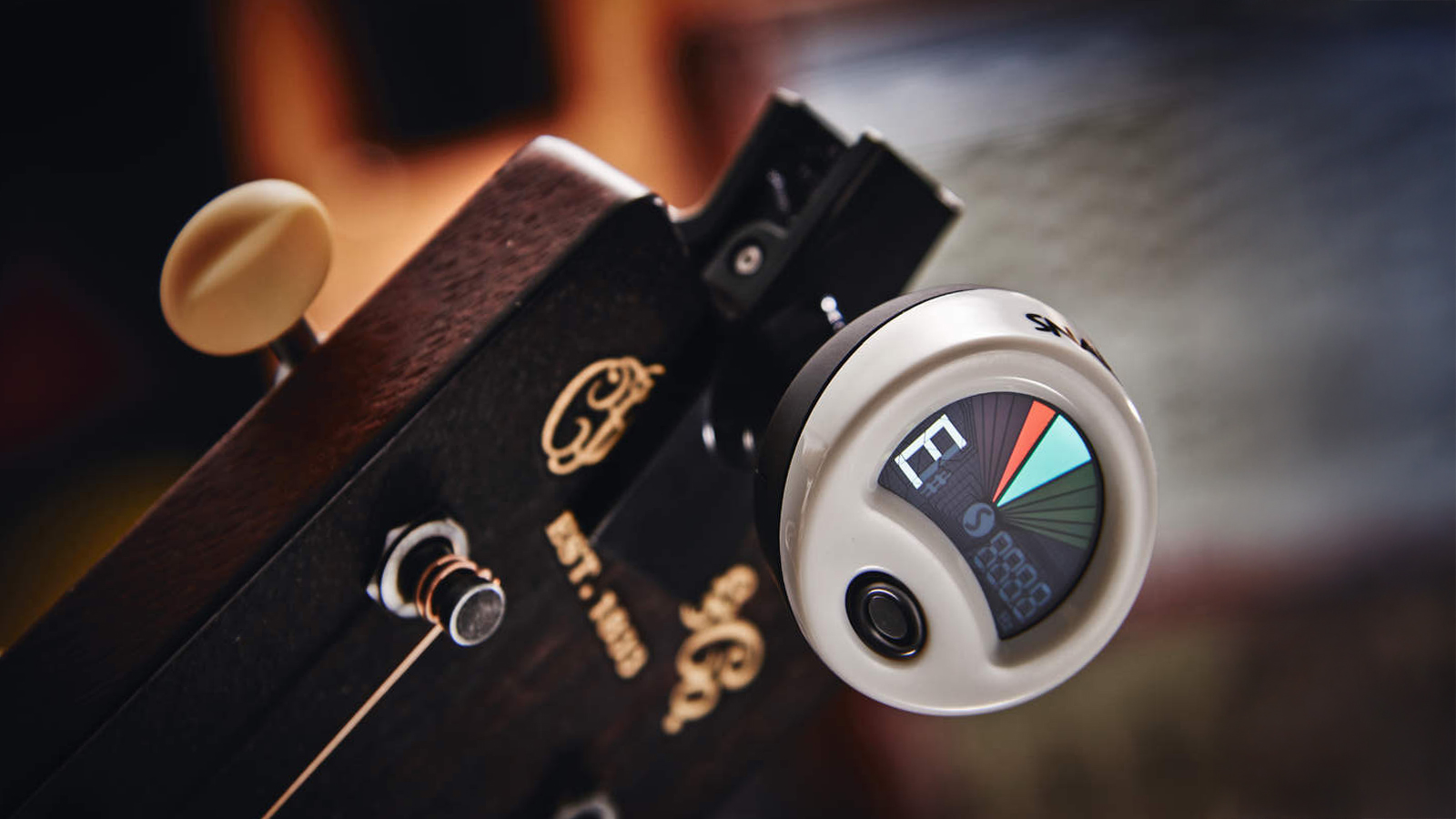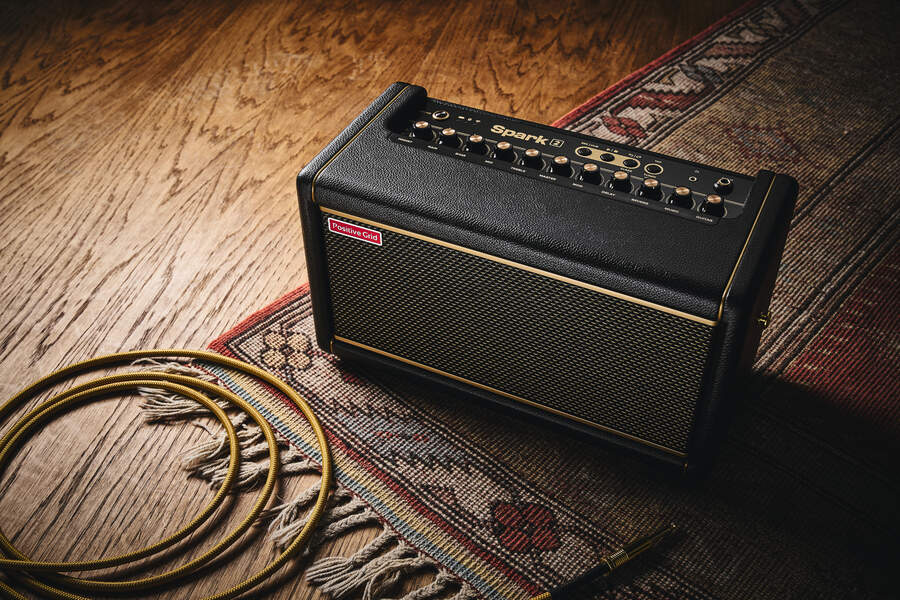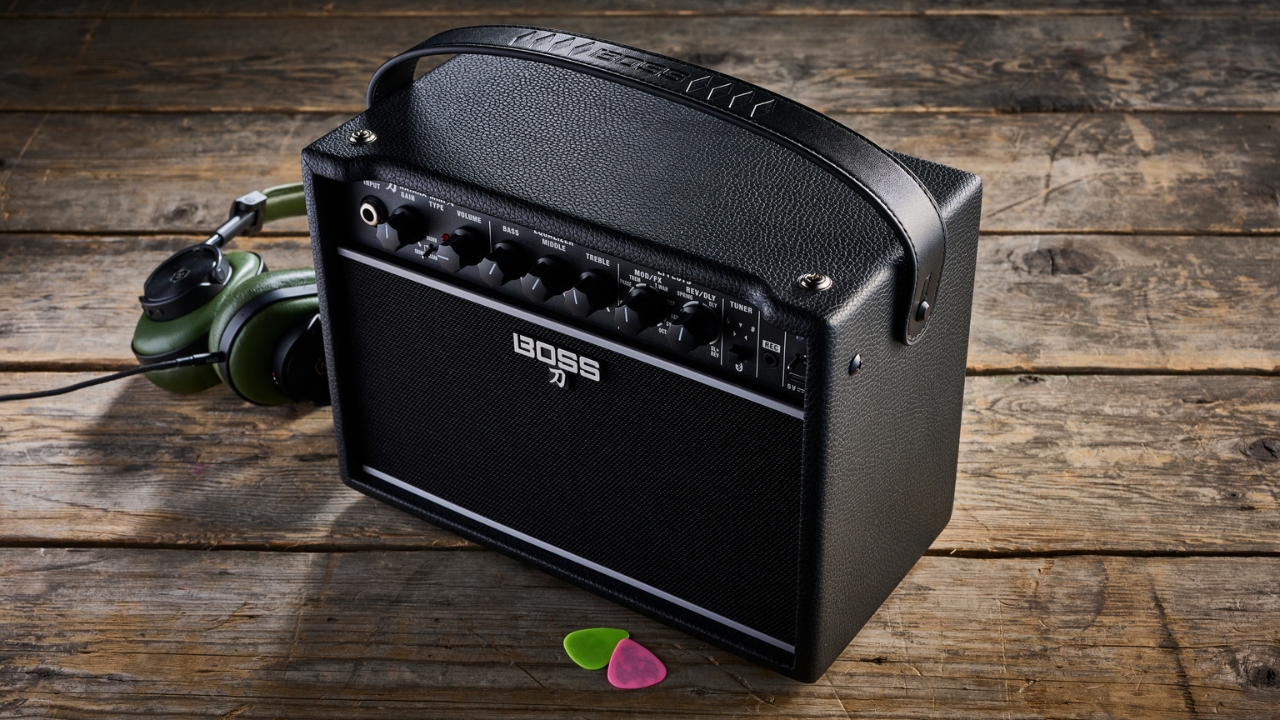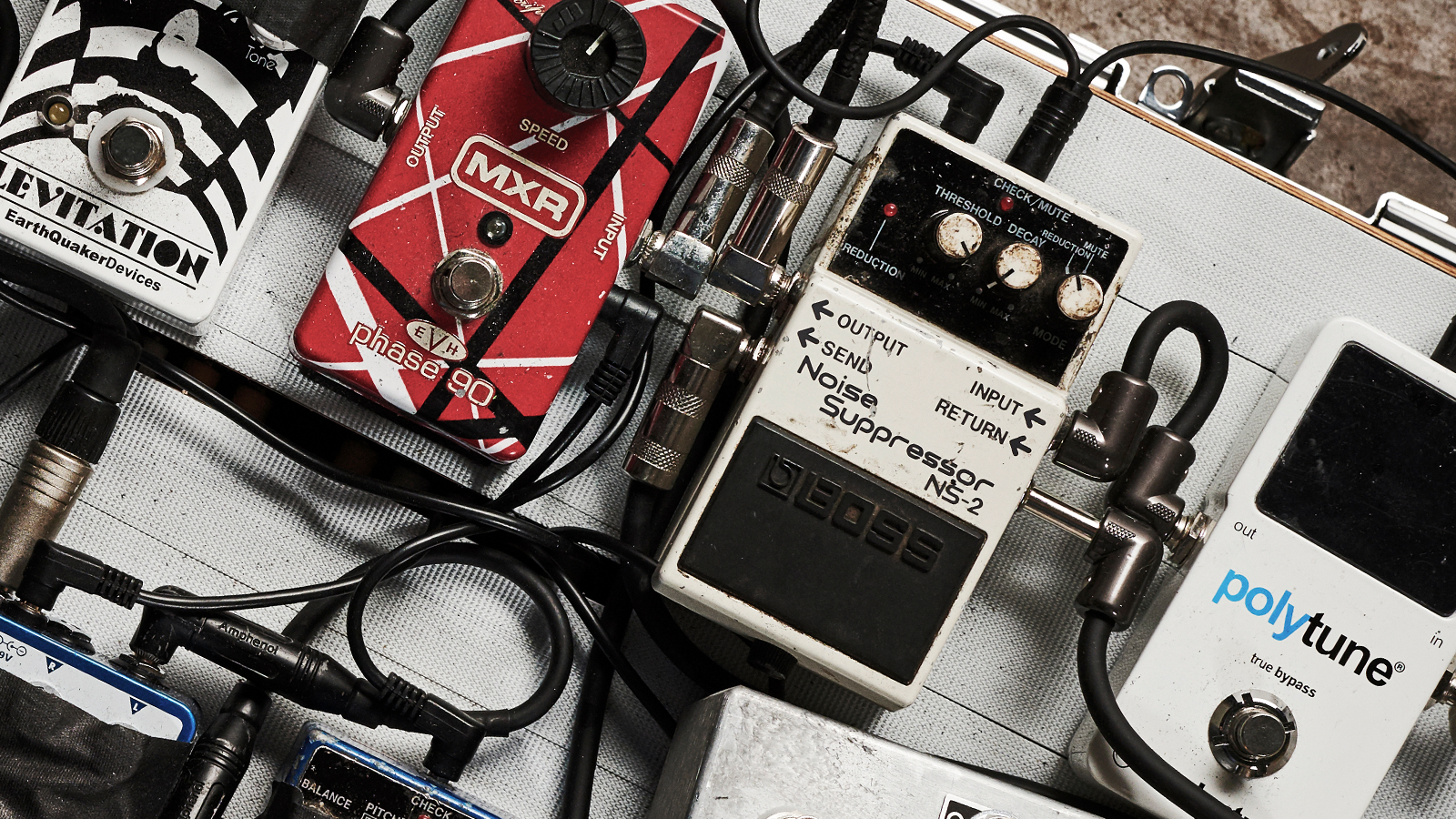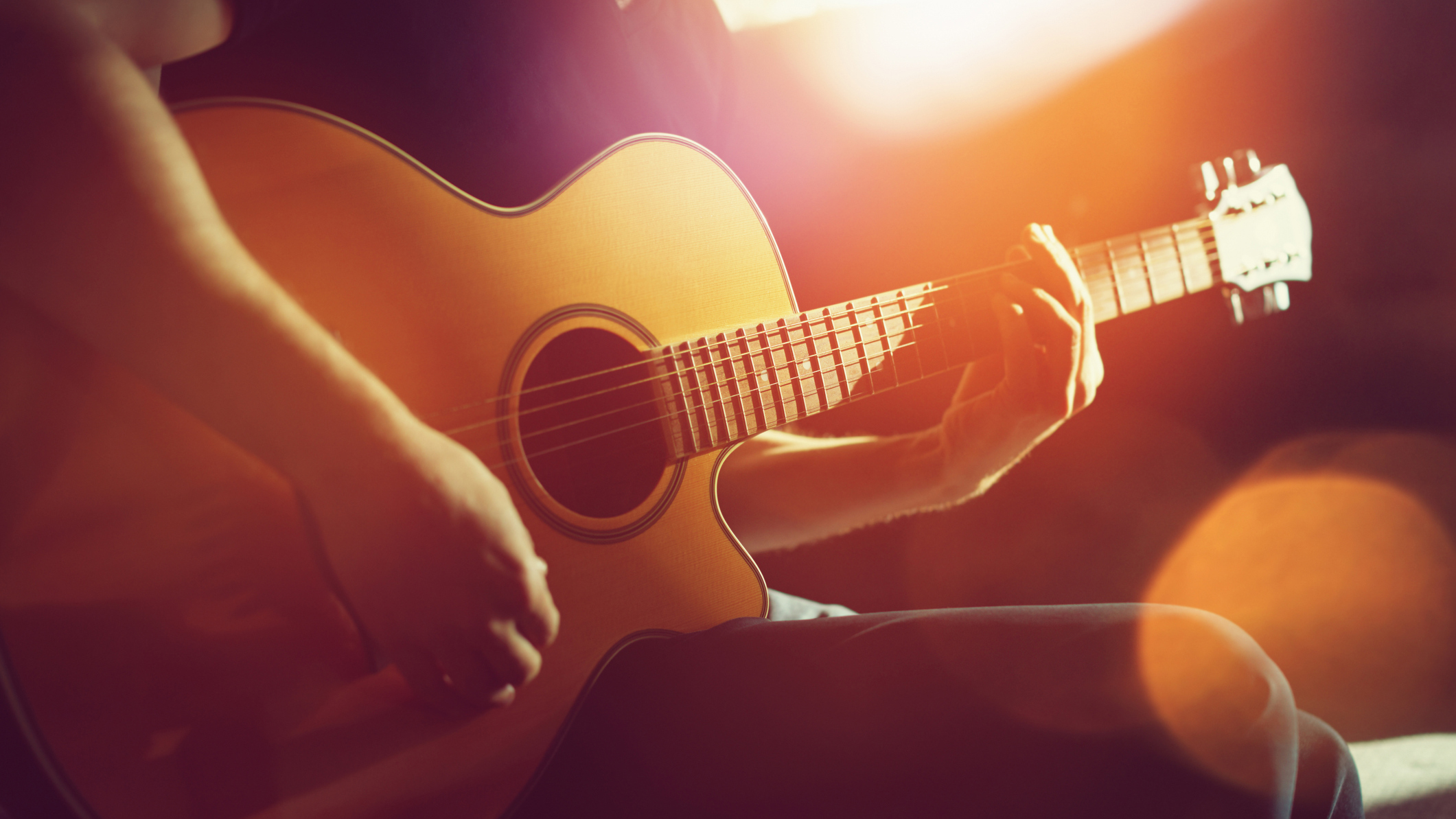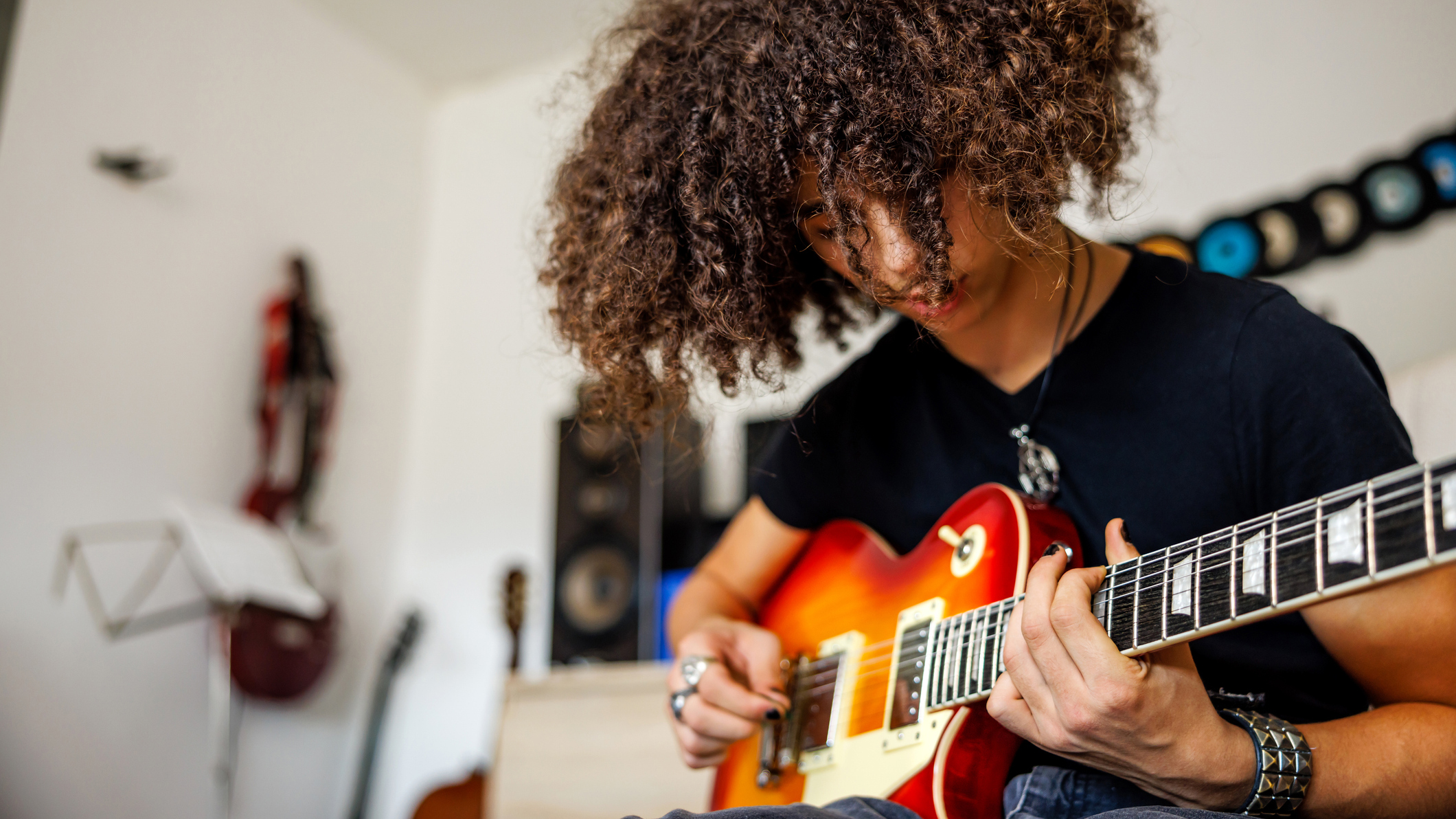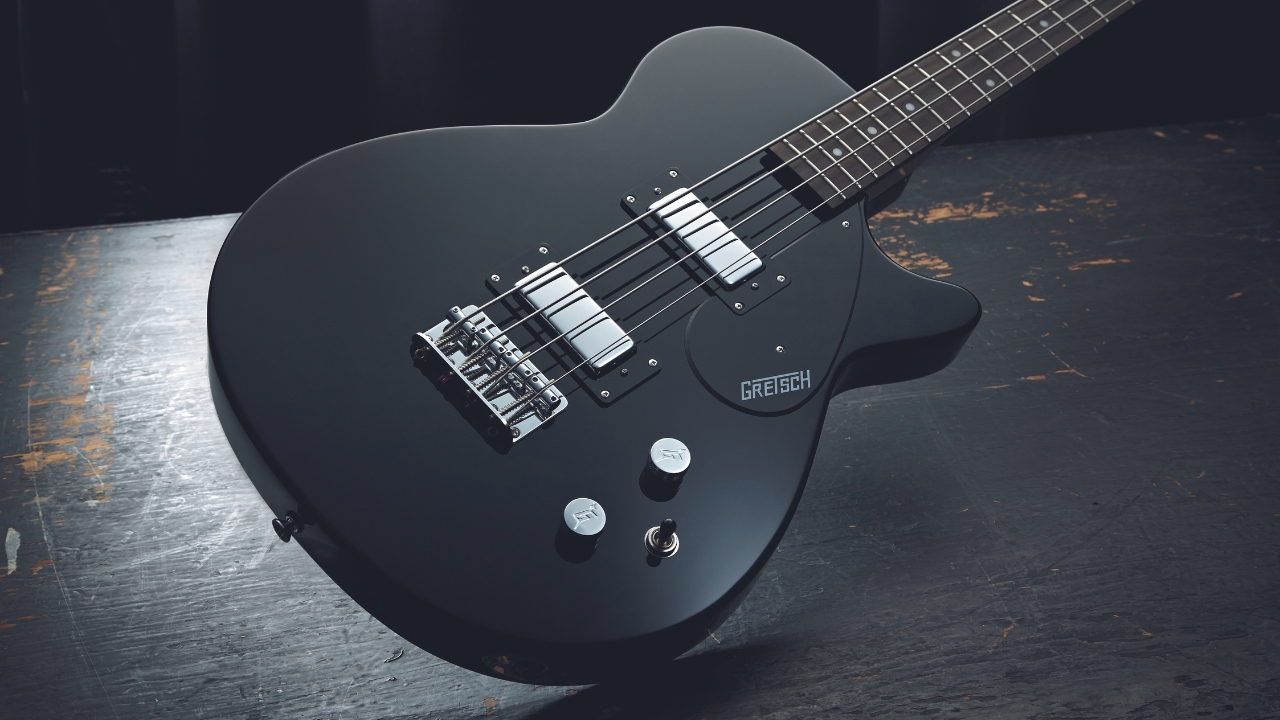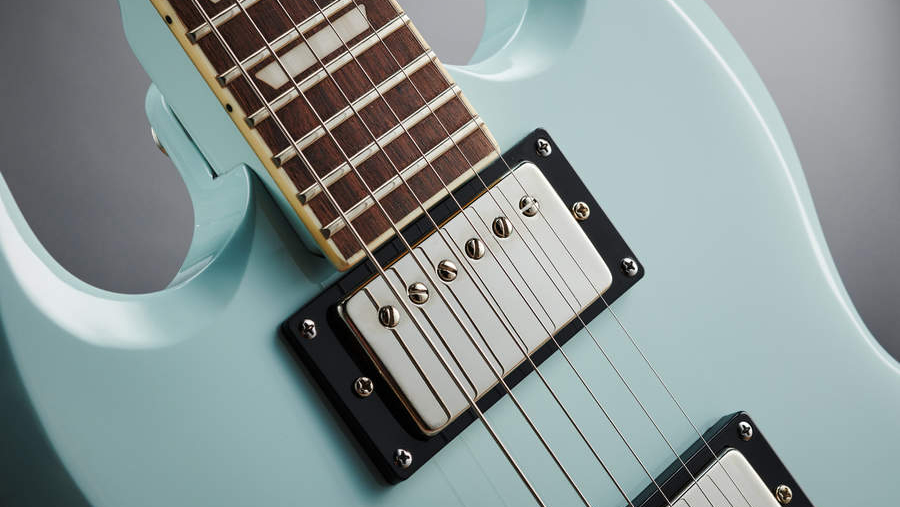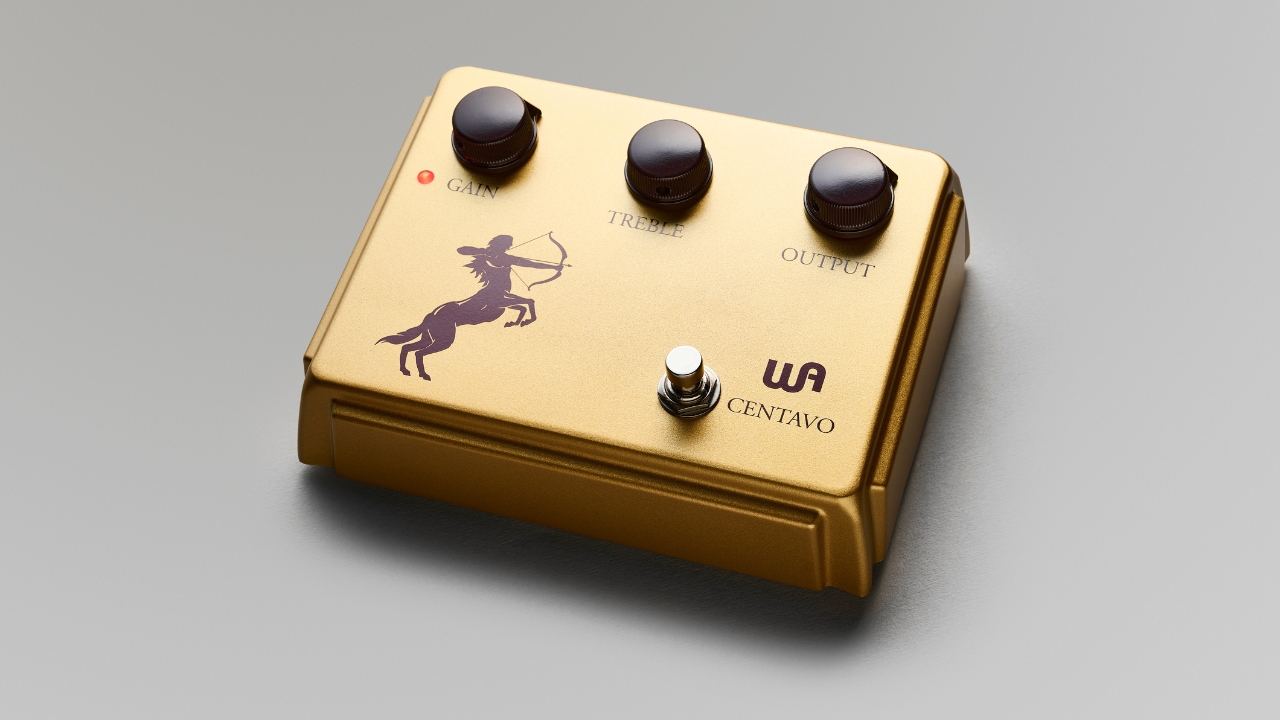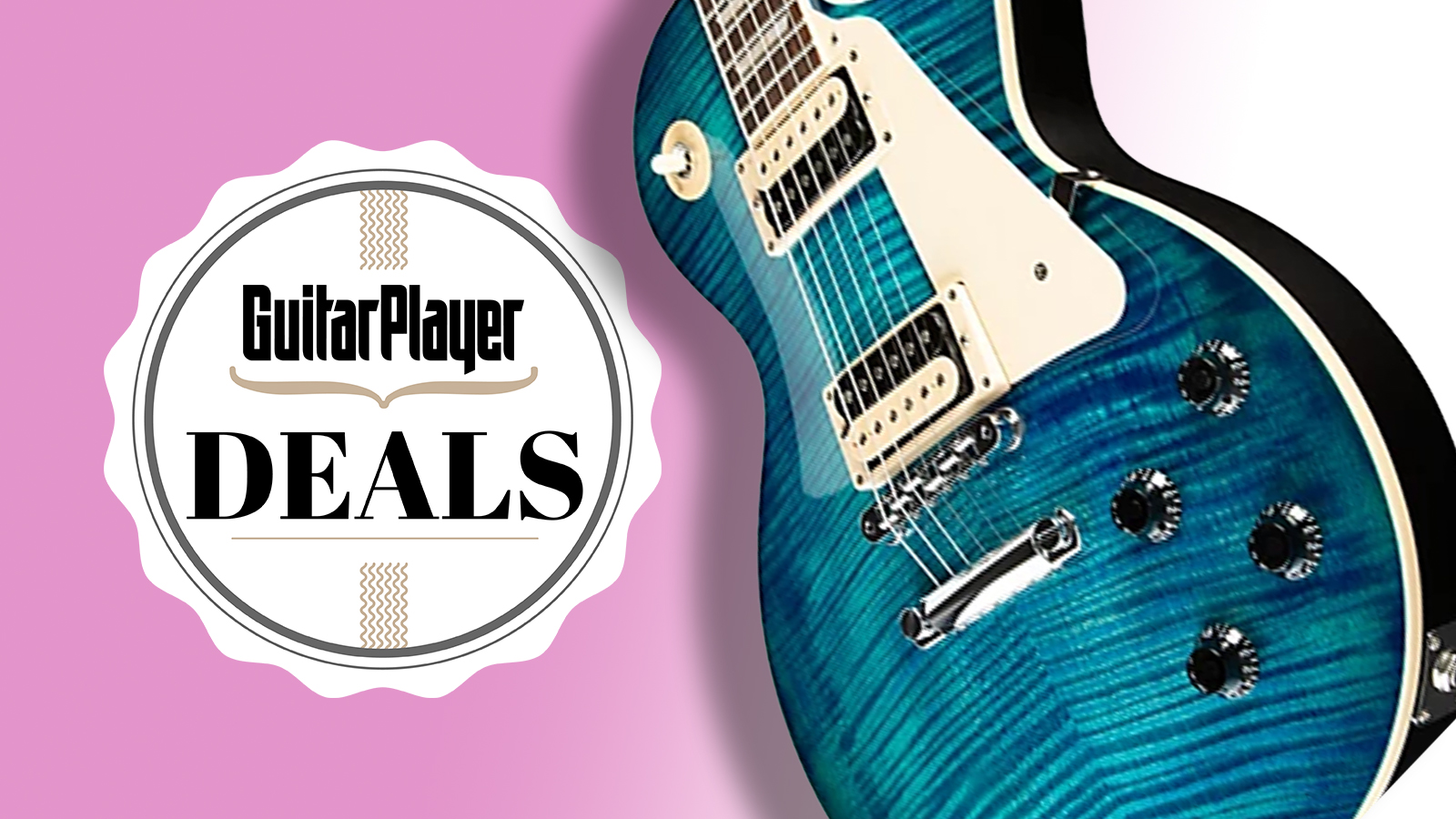Best guitar amp headphones 2025
Play your guitar ear-responsibly with these superb headphones from Audio-Technica, Beyerdynamic, Sennheiser and more
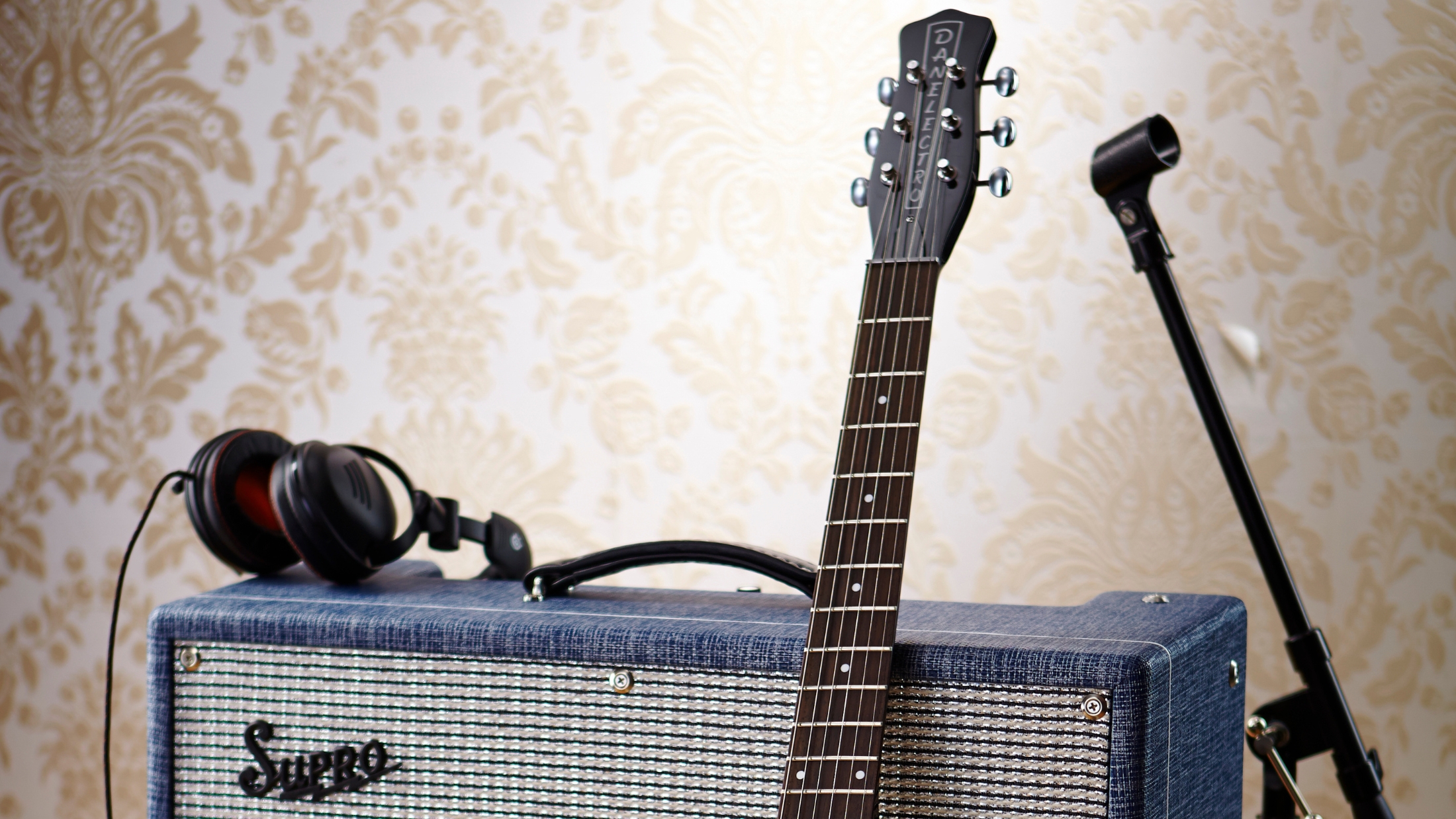
Whilst we all love the sound of a cranked tube amp, the truth is it’s not always appropriate to let rip with some awesome riffs whilst unsuspecting family members and neighbors go about their business. Of course, we don’t want anything getting in the way of our guitar playing, so a pair of the best guitar amp headphones could be the key to unlocking more practice time with your instrument.
It’s not just about saving others from the fury of your solos either, as using headphones can carry a huge benefit to your own playing. For one, you can practice at all hours without incurring anyone’s wrath in the process. For another, headphone-listening will give you a much clearer idea of how you’re sounding as opposed to how you’re playing – both with respect to your technique and to the sound of your amp or pedalboard. Free from the sometimes-untrustworthy acoustics of your usual playing environment, you can get nerdy about the nitty-gritty, allowing you to practice when it wouldn’t otherwise be possible, as well as allowing you to hone your sound without the acoustics of your room getting involved.
From studio-grade cans to headphones that are the amp, we’ve rounded up the very best guitar amp headphones available today. If you’re new to the world of headphones, make sure to check out our FAQs section at the bottom of this article.
Guitar Player's Choice
For a combination of value for money and sound quality, we’ve given the Audio-Technica ATH-M50x top spot in our list. They’re super comfortable for long playing sessions, offering great isolation from distracting external sound and an excellent sound quality that will ensure your hard-earned guitar tone shines through.
If money is tight, AKG's K240 over-ear cans deliver the best balance of sound, light weight and comfort for the money. If you're not sure whether you're going to take to headphones practice, this would be a great, affordable starting point.
Our pro choice is the Boss Waza-Air headphones. They’re expensive, but the sound immersion and sense of space are simply unlike anything else you’ll experience in the world of guitar amp headphones. Using some incredible spatial technology, Waza-Air puts you in a room with an amp, offering an unparalleled experience for playing guitar silently.
Best overall
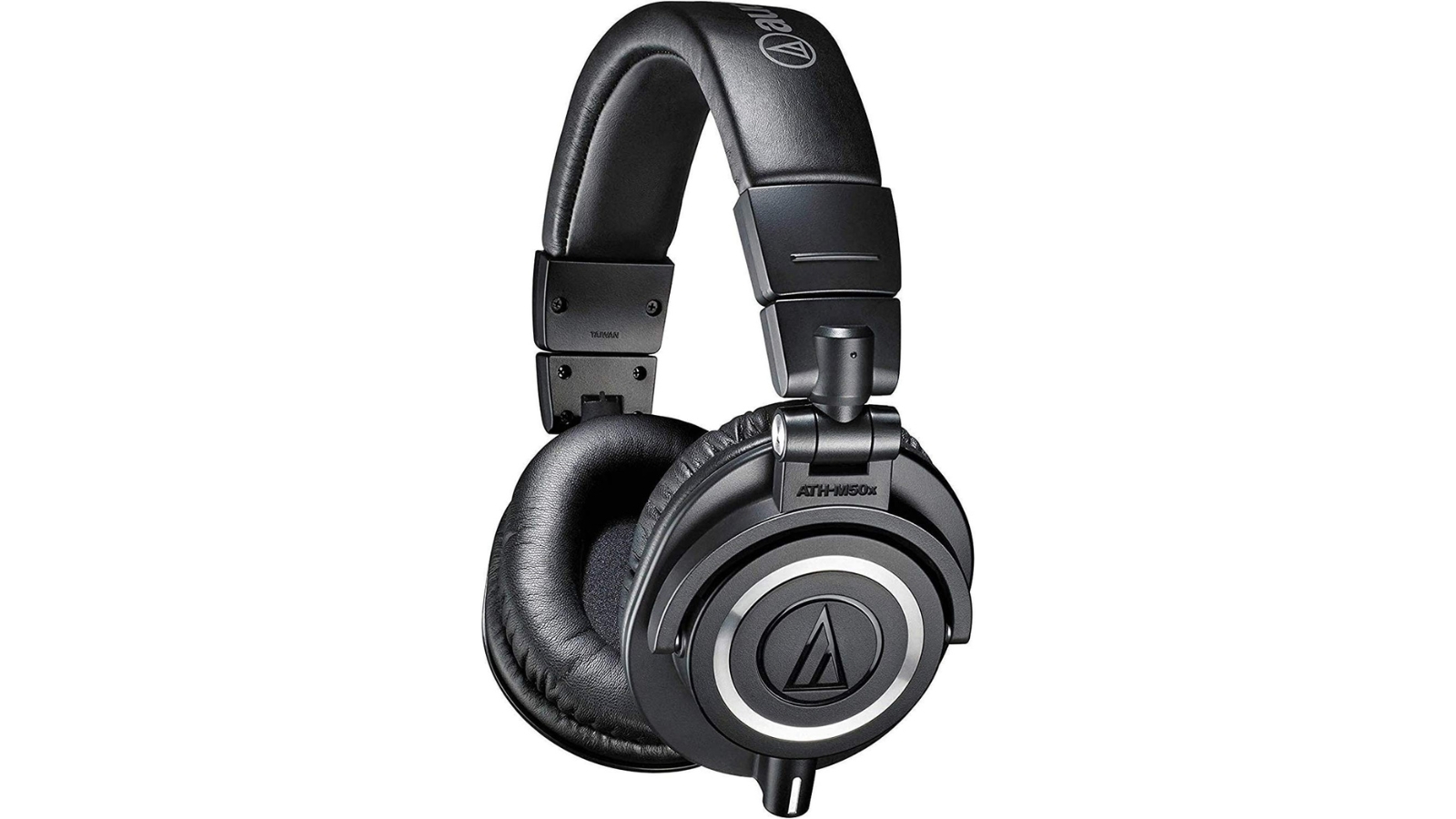
1. Audio-Technica ATH-M50x
Our expert review:
Specifications
Reasons to buy
Reasons to avoid
Amongst the best-selling headphones as a whole, the Audio-Technica ATH-M50x strikes a brilliant balance between affordability and sound quality. With their slick looks and foldable design, they make a great choice for practice and will ensure a great sound when mixing down your tracks too.
They offer a very even sound across the spectrum, open but not too bright in the highs with a prominent low end that’s very muscular. For some mixing situations, this bass emphasis may be a little too much but we found it worked really well with hefty guitar riffing. The open top end makes your reverbs and delays sound absolutely sumptuous too.
The cushions are incredibly comfortable, so you can wear them for long playing sessions without them becoming an irritant. A removable cable is a handy addition, and the cans fold so you can easily tidy them away or take them on the road with you.
Best budget
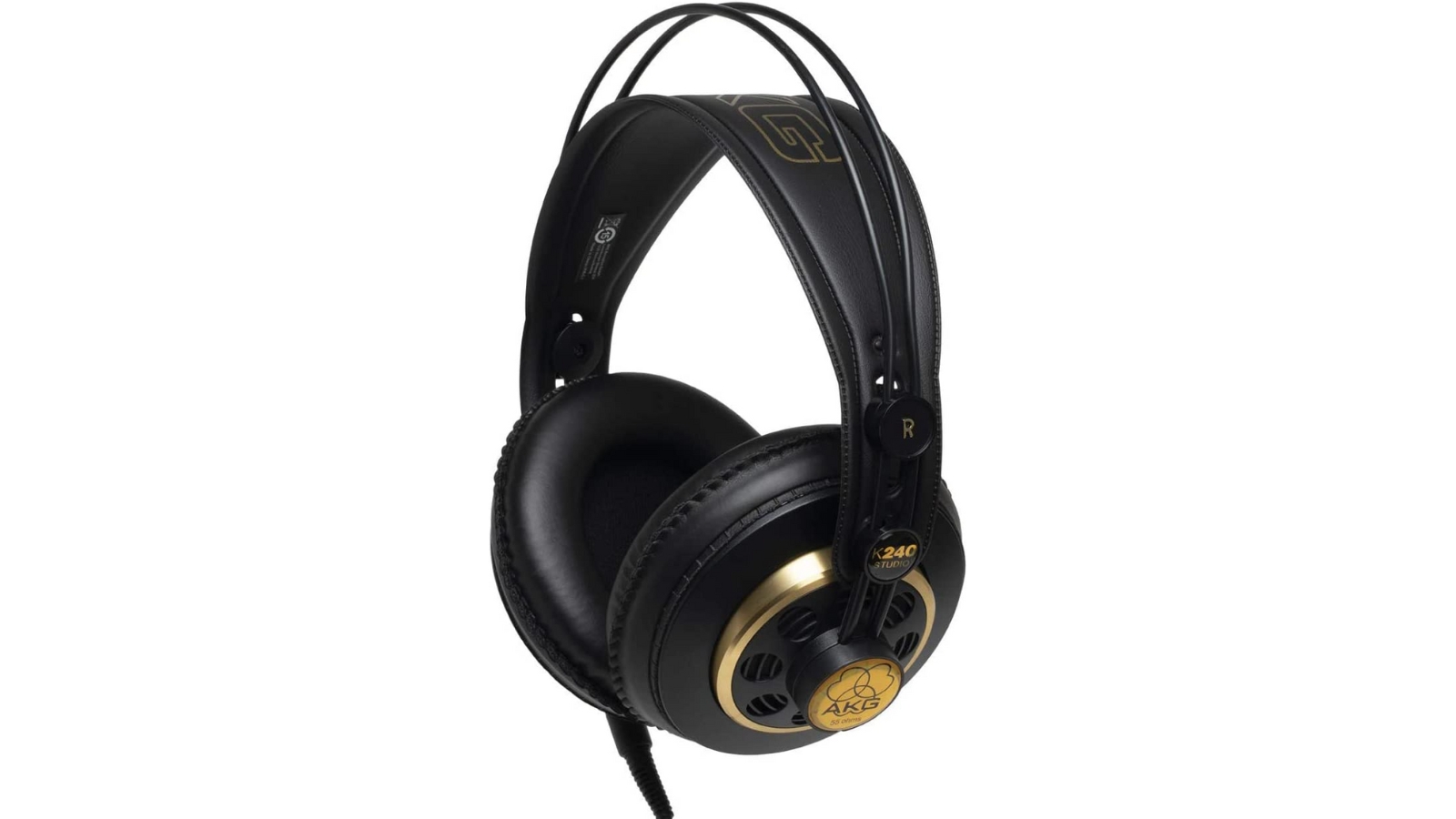
2. AKG K240
Our expert review:
Specifications
Reasons to buy
Reasons to avoid
A proper studio workhorse, the AKG K240 headphones are renowned for their sturdy build quality and low cost whilst retaining a quality sound. We’ve had a pair of these in our studio for years now and whilst aesthetically they’re past their best, in terms of usability they’re just as good as the day we got them.
They won’t blow you away with sound fidelity like some other headphones on this list, but they’re more than adept enough for use as a guitar practice tool. They sound very spacious and detailed thanks to the semi-open back design, albeit they’re not as loud as some others here and aren’t great if you’re looking for sound isolation.
AKG’s self-adjusting headband is a great feature, with the K240s adjusting to your head shape with a little adjustment when you put them on. The lightweight design means they’re perfect for long practice or recording sessions with your guitar, but conversely means they feel a little fragile, so you won’t want to stuff them roughly into your backpack.
Best premium
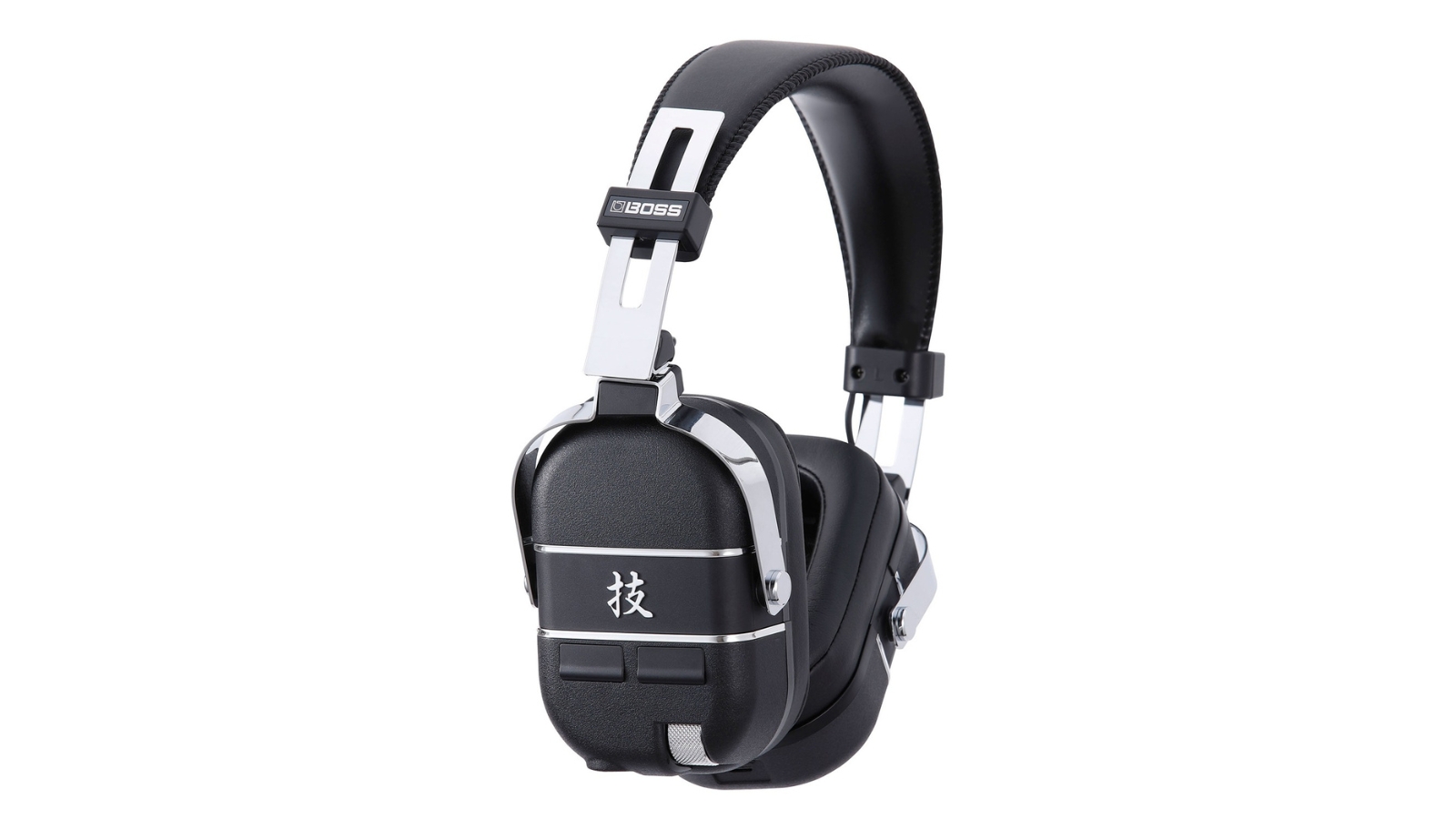
4. Boss Waza-Air
Our expert review:
Specifications
Reasons to buy
Reasons to avoid
The Boss Waza-Air headphones are essentially a Katana amp but wrapped around your head. Placing you in a simulated space with your amplifier, you can turn your head and hear the change in sound as the spatial technology reacts in real time, a feeling that simply has to be experienced.
Based on the ever-popular Katana-amp series, the tones on offer here are fantastic and well-modeled, delivering clean and high-gain tones alike. In static and stage modes, the Waza-Air headphone offers an uncanny sense of you physically standing in front of an amplifier, and the sound quality is simply incredible.
While they’re not cheap, these headphones will totally change the way you think about practicing guitar. They’re essentially a full rig in themselves, totally wireless with a dedicated transmitter. The headphones will go around five hours with a full charge and with the sound quality this engrossing, we can totally see how you’d get the maximum out of it.
Best for detail
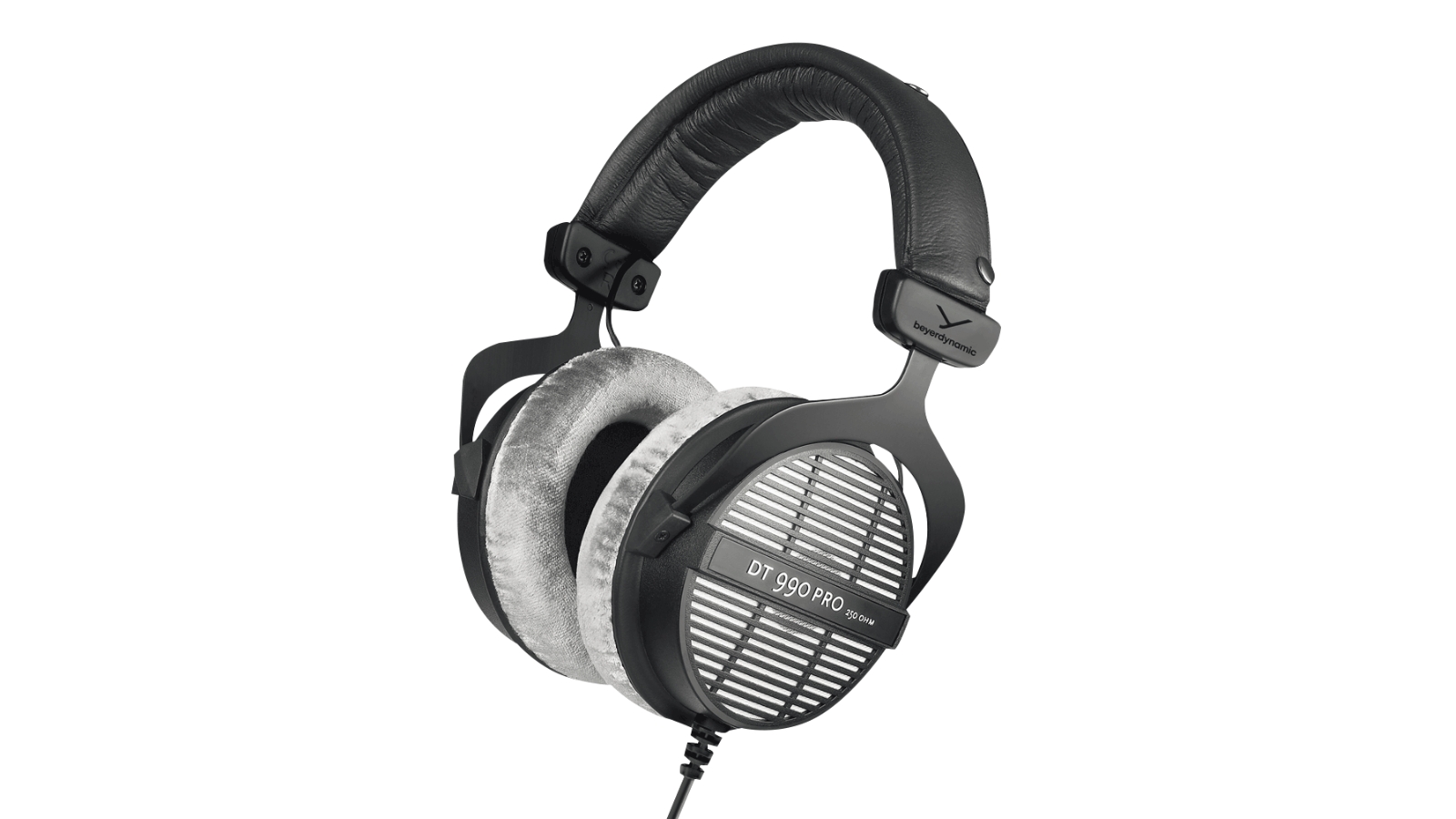
4. Beyerdynamic DT 990 Pro
Our expert review:
Specifications
Reasons to buy
Reasons to avoid
If you want detail and depth from your guitar practice sessions, the Beyerdynamic DT 990 Pro headphones will offer it in spades. Although primarily designed for mixing, we’ve had a set of these on our desk for a few years now and they sound absolutely fantastic with guitars.
The frequency response is fairly flat, with a slight de-emphasis in the sub-range and a minor mid-high-end boost. What they offer is incredible detail in sound, which is why they’re so popular for mixing, and this means they’re amazing for fine-tuning your guitar tone. Effects sound multi-dimensional and every nuance of your tone is delivered with clarity and articulation.
The velour-style ear cushions are super comfortable for long playing sessions and although the design is non-foldable, due to their open-back design these are cans that should be living on your desk rather than traveling around with you. They're also open back, which means when you crank the volume the sound will bleed out.
Best for isolation
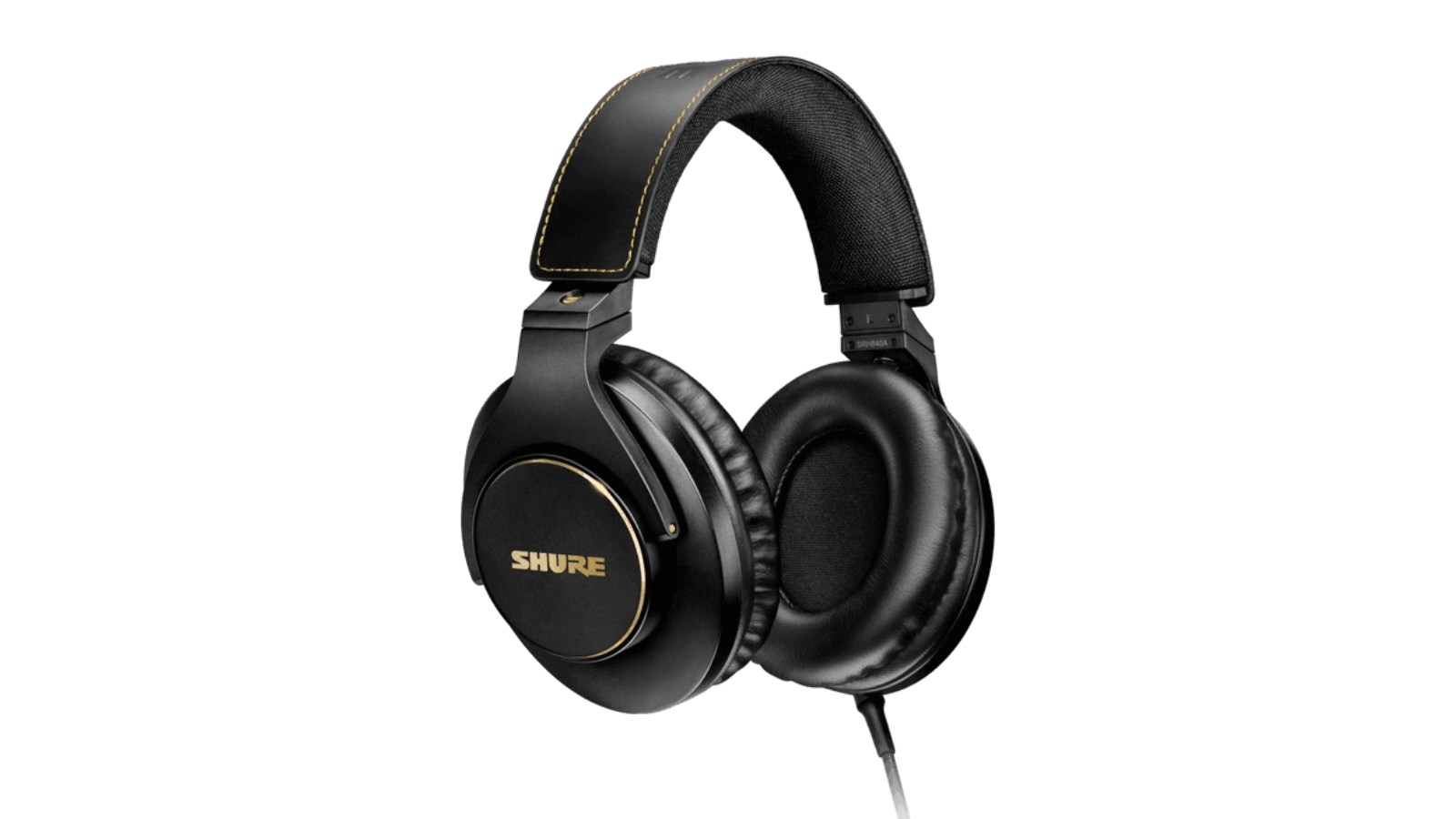
5. Shure SRH840A
Our expert review:
Specifications
Reasons to buy
Reasons to avoid
If you're looking to isolate yourself from any distracting sounds while you play your guitar, we love the Shure SRH840A for their excellent external noise rejection. With a classy design and excellent feature set, they're perfect for the guitar player.
Where you need the utmost concentration to nail that part, or if you're tracking guitars on your next recording, these headphones do an excellent job of keeping you focused. The ear pads are really comfortable as well, so you won't have a problem wearing them for extended sessions.
We've been using them for a while now and there's a very 'hi-fi' feel to their sound. They're not quite as flat as you'd probably like for mixing duties, but certainly useful as a reference pair. We found the long cable, which locks into the headset, really handy too, allowing us to navigate busy setups on our home studio desk without compromising recording or practice sessions.
Best for transparency
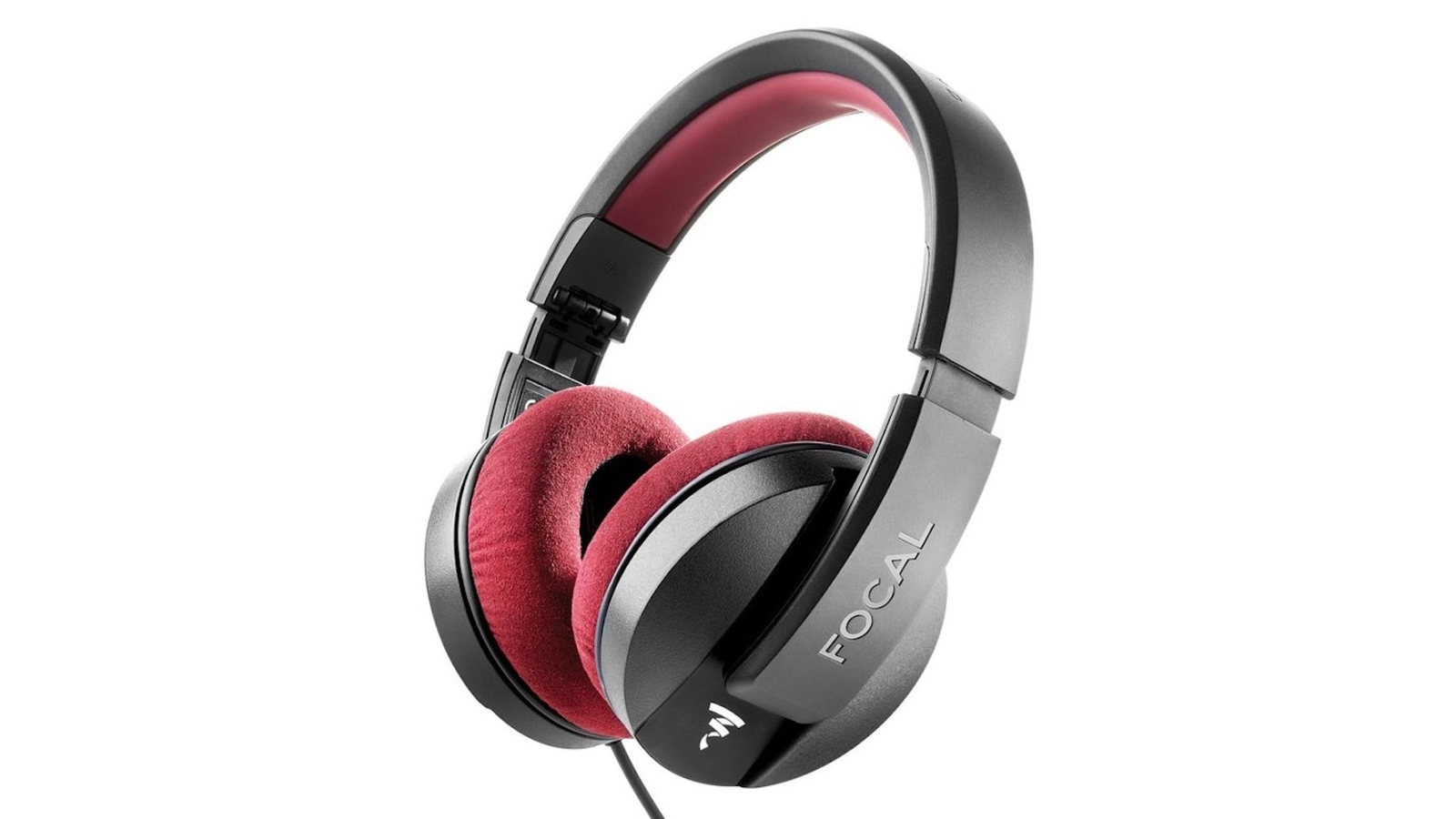
6. Focal Listen Professional
Our expert review:
Specifications
Reasons to buy
Reasons to avoid
With something of a cult following in the world of music, this French brand isn’t necessarily the first thing that comes to mind for a set of guitar amp headphones, but the Focal Listen Professional will ensure you hear your guitar tones in the utmost quality and clarity.
They offer an honest sound with plenty of tightness in the sub and bass regions. There’s barely any discernible distortion here, and the high end is lovely and transparent which will expose any harshness in your guitar tone. They’re a pricey set of cans but we feel totally worth it for the fidelity you get.
The memory foam earcups are made with certain materials you’d find in acoustic treatment, offering a brilliant sense of isolation that leaves you able to focus purely on your playing without any outside distractions. They give you a nice snug feeling that’s great for long practice sessions, although we found the silicon headband tended to attract sweat when things got heated.
Best for durability
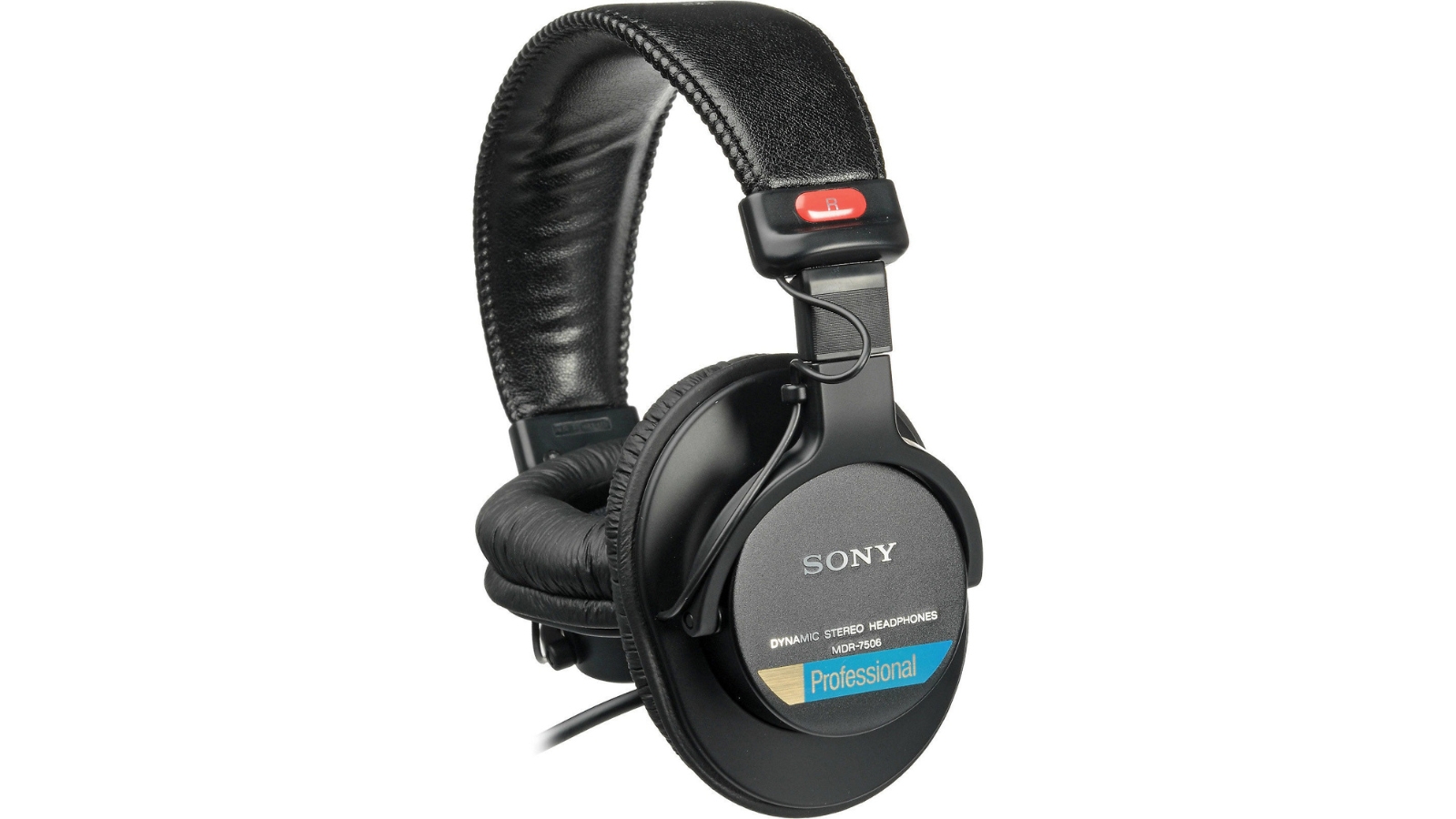
7. Sony MDR-7506
Our expert review:
Specifications
Reasons to buy
Reasons to avoid
A cult classic in the world of studio headphones, the Sony MDR-7506 is also a great choice for practicing your guitar chops. Reliable and revealing with a seriously good pedigree, they’re great value for money and solidly built, an obvious choice headphones for practicing with your guitar amp.
Famous for being producer Andrew Scheps’ mixing cans of choice, there’s no flattery offered here so every downfall of your guitar tone will be immediately noticeable. The frequency response is flat, with a slight bump in the mid-high range that will help you pick out previously unnoticed harshness but if your guitar tone sounds good, you’ll hear every detail of it here.
They look pretty old school but going with the if-it-ain’t-broke policy Sony has kept these headphones exactly the same in terms of design since the 90s. The adjustment bands for each ear have a graded slider so you can keep them at the same spot for when you come back to them, and although the cable is a little on the heavy side, we found the leatherette cups super comfortable.
Best closed-back
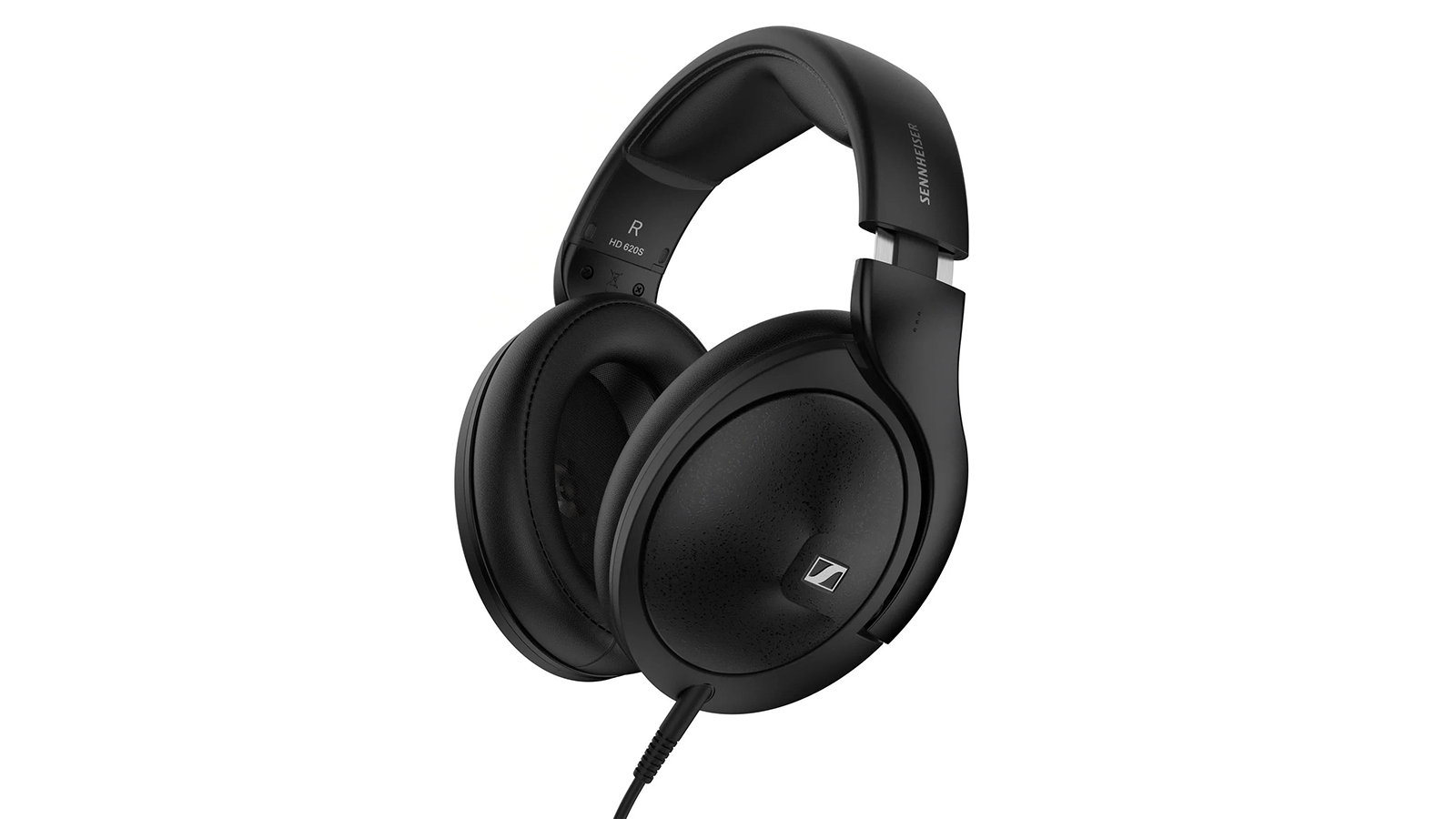
8. Sennheiser HD620S
Our expert review:
Specifications
Reasons to buy
Reasons to avoid
When it comes to headphones, Sennheiser needs little in the way of introduction. This is the de facto headphone brand for many an audio engineer, and many more hi-fi enthusiasts. The Sennheiser sound is one of clarity and definition, with full rounded low-mids and a shiny-smooth top-end that breathes – all of which the HD620S delivers in spades.
The HD620S is also a closed-back design, though, which usually runs counter to the ‘airy’ adjective. With some clever engineering, the HD620S escapes its own confines, enabling an involved and private listening session with all the space you could ask for. Gung-ho and learner guitarists alike will love this.
Where closed-back monitors can often have guitars sounding cluttered and close, the HD620S’ huge soundstage makes for the ideal pedal platform. In here, you can soundscape to your heart’s content, and worry less about the compounding effect that lesser headphones can have. Stereo rigs with wide ambient reverbs will benefit especially, expanding out into a blissful quietude as the closed-back design keeps the world out. In short, this is the immersive choice.
Best lightweight option
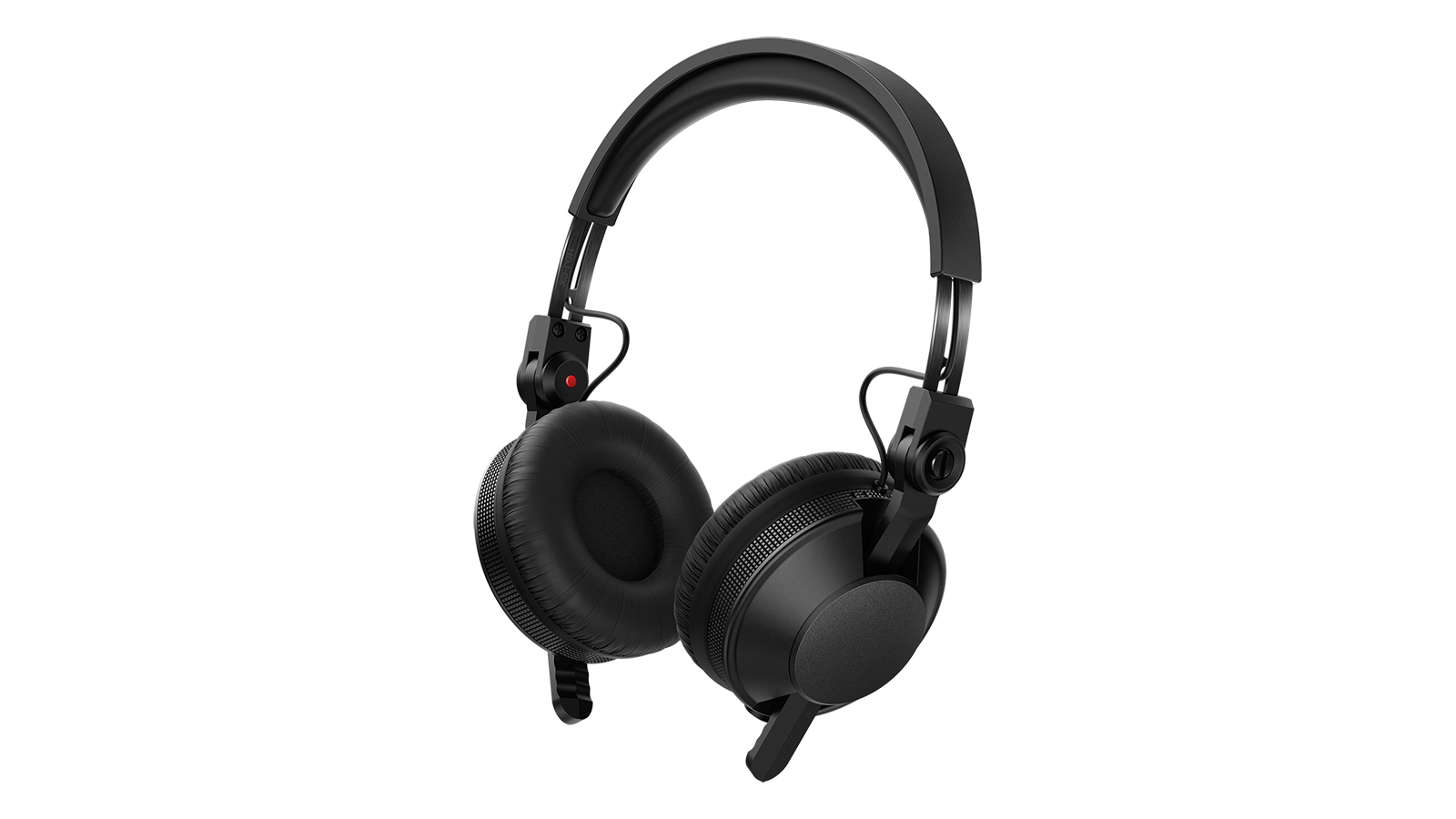
9. Pioneer DJ HDJ-CX
Our expert review:
Specifications
Reasons to buy
Reasons to avoid
The Pioneer DJ HDJ-CX are a recent headphone offering from the DJ-centric audio brand, with a familiar and unassuming form factor. Against many other monitor headphone options, the small ear-cups of the HDJ-CX might seem an odd choice – but the purpose of these headphones is not, like most other brands, immersion.
The HDJ-CX purports to be designed with ergonomics in mind; they are meant to be easier on your neck and shoulders, largely by virtue of being considerably lighter than other models. Despite being smaller and less ear-overwhelming in nature, the HDJ-CX are capable of some serious sounds, with a huge frequency range of 5hz-30khz.
If you’re shoegazing for hours at a time, these are an ideal option for saving your neck. Your ears might not be as happy after so long under those cups, but that’s a problem for future you – and one you should be more than willing to face in favor of this pair’s ridiculous bass-presence-to-size ratio.
Best comfort
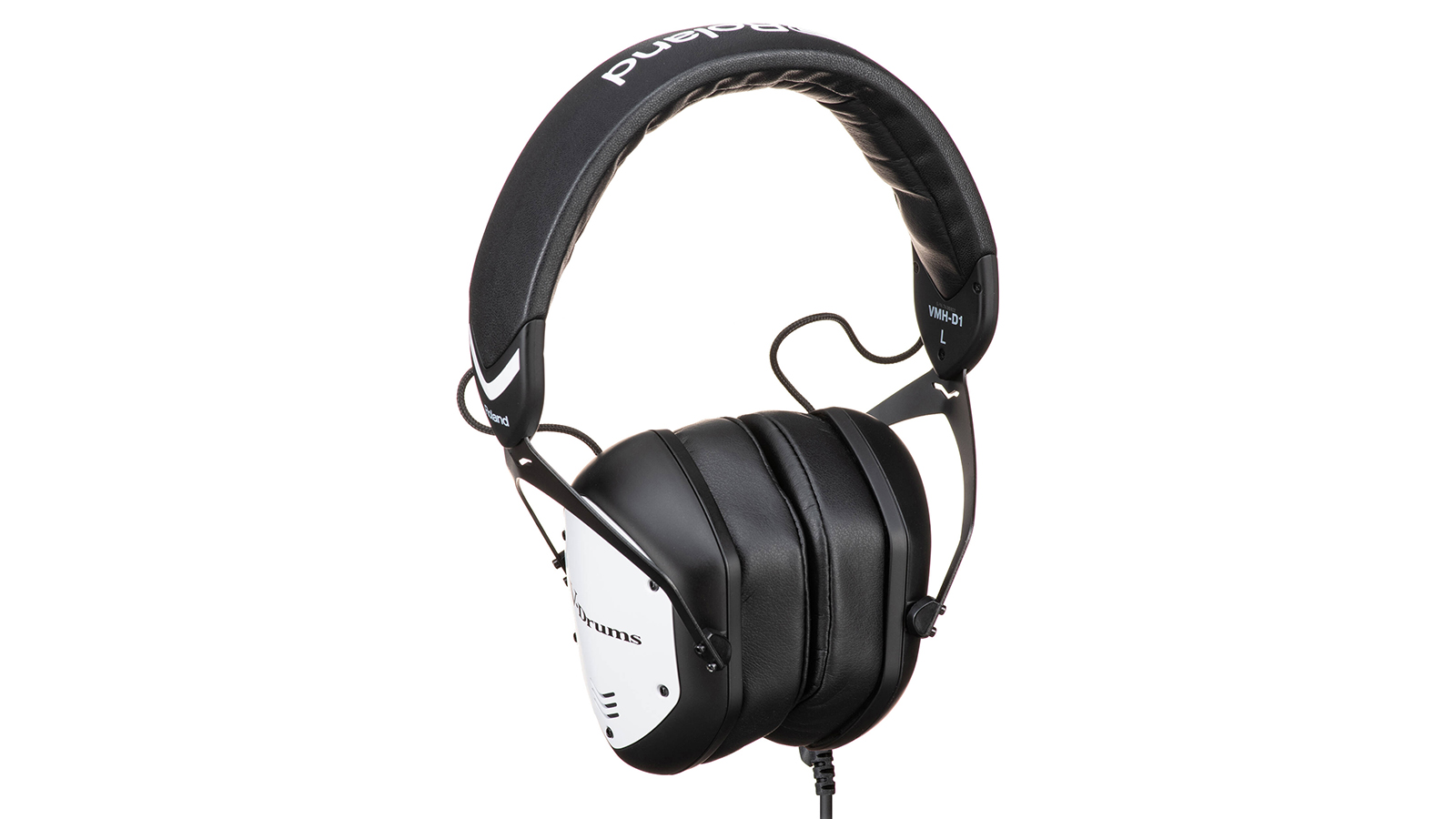
10. Roland VMH-D1 V-Drums Headphones
Our expert review:
Specifications
Reasons to buy
Reasons to avoid
Here, a potentially unusual suggestion from the ranks of Roland’s peripheral equipment: a set of headphones designed specifically for playing electronic drums through. The VMH-D1 V-Drums headphones were created by Roland and V-MODA, and with drum rehearsal wholly in mind. So what makes them at all suitable for practicing guitar through?!
Well, a lot of the design features that make these headphones so kit-friendly are also hugely beneficial for guitarists – starting with comfort. The VMH-D1s have been created with comfort and longevity in mind, from memory-foam-padded ear cups to sweat-friendly materials. There’s even a handy cable caddy that you can use to keep your headphone cable in place behind you; no more wires dangling over your strings and muting them.
Sonically, the VMH-D1s are tuned with drum kits in mind, but again this can work in your favor – and especially if your amp has backing-track capability. When playing along to something, it’ll sound as bombastic as it ought to. An overall left-field option for playing guitar through headphones, but one which could be inspired.
FAQs
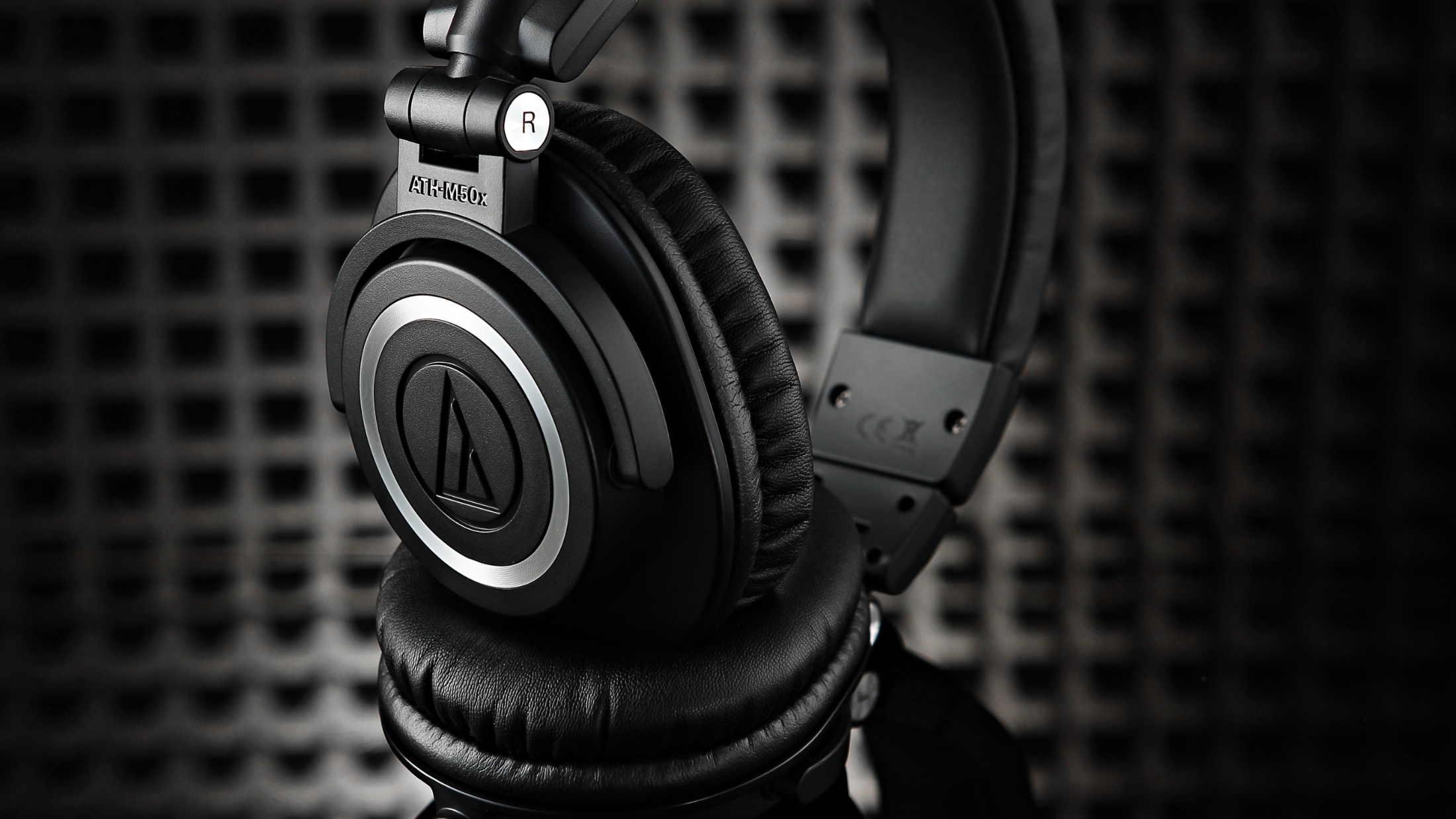
What kind of headphones I you need for a guitar amp?
You don’t need any specific type of headphones to use with a guitar amp, so long as your amp has a headphone jack. Not every amp has one so it’s wise to check first before purchasing a set of guitar amp headphones.
Some amps will also have different jack sizes with some carrying the smaller 3.5mm size you find on the majority of consumer-grade headphones whereas others will feature the larger 6.35mm socket, so you’ll require a converter in the case of the latter.
Do most guitar amps have headphone jacks?
Generally speaking, you won’t often find a headphone output on a tube amp, but they’re far more popular on modeling amps and solid-state amps. Tube amps generally don’t have headphone outs because their output would be too high for headphones to handle. Modeling and solid-state amps don’t have this issue so it’s fairly common to find them with headphone jacks.
What is the difference between closed-back and open-back headphones?
The difference is in the way the ear cups are designed. On open-back headphones air is allowed to pass from the rear of the speaker driver, preventing the build-up of any resonances and low frequencies. This is why you’ll find many studio and high-end headphones with an open-back design as it allows for a more natural sound.
The downside of this is that they also allow any external noise in, and if you’re playing at a reasonable volume, your playing will bleed out so anyone nearby will definitely be able to hear those bum notes and out-of-tune bends!
Closed-back headphones don’t allow any air to escape, which means a less natural sound, but much better isolation from the world around you. Closed-back headphones tend to hype the low end of the frequency spectrum but you get to be safe in the knowledge no one can hear you messing up that legato lick for the eighth time.
You’ll find headphones geared more towards regular consumer listening with the closed-back design, as there’s little to no bleed from them. This makes them perfect for silent practice late at night.
Do guitar amps sound good with headphones?
We’ve played a variety of amps with headphones and some sound great, others not so much. An old solid-state amp we used a few years back ended up being quite fizzy and uninspiring in terms of sound, but newer modeling amps we’ve tried sound absolutely incredible with a set of cans on.
If your amp is relatively new then you likely won’t have any issues with sound quality, and it’s important to note that the reason you’d be playing with headphones on is to practice, so tone isn’t quite as important. You can unleash your amp properly in the rehearsal room or when no one’s around to tell you not to!
Can I use Bluetooth headphones with a guitar amp?
Technically speaking, the answer is yes – but you wouldn’t necessarily want to. While many guitar amps have Bluetooth receivers built in, in order that you can cast songs or backing tracks to your amp from your phone, none have been designed with a built-in Bluetooth transmitter. This is because Bluetooth has latency, meaning you would experience a delay between playing your guitar and hearing the results in your ears.
You could technically plug a third-party Bluetooth transmitter into the headphone output of your guitar amp and connect a Bluetooth-enabled headphone set to it, but you’d probably find it quite disorienting, difficult or even un-musical to play that way. Wired connections remain king, even if they aren’t the most cutting-edge!
How we choose products
At Guitar Player, we are a team of passionate guitarists who understand the importance of finding the perfect solution for private practice and recording. That's why we have meticulously tested and evaluated various guitar amp headphones to identify the best options available.
To compile our list of top guitar amp headphones, we combine our practical experience, extensive research, and insightful discussions with our editorial team. We consider factors such as sound quality, comfort, durability, portability, and value for money, ensuring that we showcase the finest headphones designed specifically for guitar amplifiers.
As dedicated musicians ourselves, we recognize the value of having a reliable and immersive listening experience while practicing or recording. Whether you're a late-night bedroom player, a traveling musician, or a recording enthusiast, our goal is to provide reliable and informed recommendations to help you discover the best guitar amp headphones that cater to your specific needs and elevate your playing experience.
Related buyer's guides
You can trust Guitar Player.
- Capture your playing with the best acoustic guitar mics
- Get a new axe with the best electric guitars
- Create music with the best guitar audio interfaces
- Check out the best acoustic guitars for any kind of player
Get The Pick Newsletter
All the latest guitar news, interviews, lessons, reviews, deals and more, direct to your inbox!

Matt is a Junior Deals Writer here at Guitar Player. He regularly tests and reviews music gear with a focus on guitars, amps, pedals, modelers, and pretty much anything else guitar-related. Matt worked in music retail for 5 years at Dawsons Music and Northwest Guitars and has written for many music sites including MusicRadar, Guitar World, Guitar.com, Ultimate Guitar, and Thomann’s t.blog. A regularly gigging guitarist with over 20 years of experience playing live, writing, and recording in bands, he's performed everything from jazz to djent, gigging all over the UK in more dingy venues than you can shake a drop-tuned guitar at.
